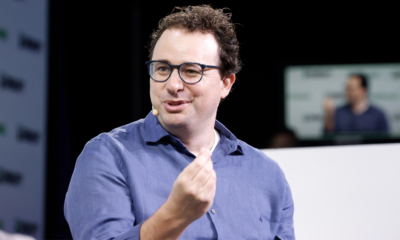Health
World AIDS Vaccine day: Here’s what we know about HIV Vaccine research so far
Every year on May 18, World AIDS Vaccine day is observed as an important reminder about the importance of vaccine research. This observance also raises awareness of the impact of HIV and AIDS, risk, and stigma surrounding HIV and also acknowledge the role of all those people who are working towards finding a vaccine for HIV. According to the World Health Organization (WHO), ”HIV continues to be a major global public health issue, having claimed almost 33 million lives so far.” It is also a day to reach out to HIV-positive patients and help them cope with it. According to UNAIDS, there were approximately 38 million people across the globe with HIV/AIDS in 2019. Of these, 36.2 million were adults and 1.8 million were children
The foundation of HIV Vaccine Awareness Day was laid by by U.S. President Bill Clinton on May 18, 1997 who emphasised the importance of developing a vaccine for HIV within the coming decade “Only a truly effective, preventive HIV vaccine can limit and eventually eliminate the threat of AIDS,” he had said. The first HIV Vaccine Awareness Day was observed in 1998 to commemorate the one-year anniversary of Bill Clinton’s speech on the topic. Every year, various organizations around the country organize events to make people more aware of HIV as well as its prevention.
HIV Vaccine Development
1. Despite decades of work, scientists have failed to develop an effective vaccine against the virus. The estimated $39-billion spent on Covid-19 vaccine development to date is nearly 50 times what’s spent on HIV vaccine research each year.
2. SARS-CoV-2 (the virus that causes Covid-19) is a relatively simple target for a vaccine – far less complex than HIV. The spike protein on HIV viruses is much more devious,
3.Due to rapid mutation of the genes that make the spike, HIV has millions of different strains. As aresult, antibodies against one strain are unlikely to neutralize the others.
4. Researchers have taken the first step toward developing a novel type of vaccine regimen that could protect people against HIV.
5. Highly effective antiviral treatments for HIV are available, but those living with the virus must take them for the rest of their life and the long-term impact of infection continues to be a challenge
6. According to William Schief, executive director of the International AIDS Vaccine Initiative (IAVI), HIV is not like one virus, It’s like 50 million different viruses around the world right now.
7 On rare occasions, people with HIV make these antibodies naturally.This natural production gives scientists the opportunity to identify where the antibodies bind to the virus. Only about 1 in a million naive B cells have this potential, says Prof. Schief, according to Medical News Today
8. To overcome this challenge, Schief and his colleagues at Scripps Research and IAVI are using a technique called germline targeting to create a vaccine that activates these rare cells.
Also Read: Covaxin effective against India, UK coronavirus strains: Bharat Biotech
9. In a phase 1 clinical trial, the vaccine appeared to be safe, and it had the desired effect in nearly all of the volunteers who received it.
10. HIV or Human Immunodeficiency Virus attacks the cells that helps the body fight infection. HIV makes a person more vulnerable to other diseases.

































